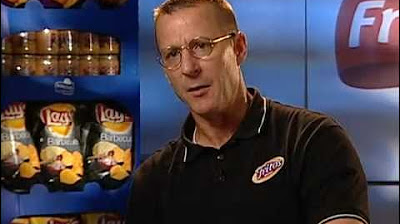Electrical Energy From Waste- Durban South Africa
Summary
TLDRThe Durban solid waste project in South Africa is pioneering green technology by generating electricity from landfill gas. With 4,000 tons of waste processed daily, methane is extracted and used to power engines, producing electricity for up to 6,000 homes. This not only prevents 21 times the greenhouse gas emissions of CO2 but also supports the project financially through carbon credits. The initiative, funded by the World Bank and French Development Bank, is a model for sustainable waste management and climate change mitigation.
Takeaways
- 🌱 The project at Durban is pioneering green technology by creating electricity from trash at landfills.
- 🏭 Basa Road Landfill, one of the largest in southern Africa, processes about 4,000 tons of waste daily, utilizing biodegradable waste for gas extraction.
- 🔥 The landfill gas, primarily methane, is actively extracted and used as fuel to generate electricity, which is fed back into the grid.
- 📊 The system involves laying perforated pipes to collect methane from decomposing waste, which is then channeled to a power generation compound.
- 💡 The project generates enough power to supply approximately 5,000 to 6,000 low-cost houses, demonstrating its scalability.
- 🌡️ Methane, being 21 times more potent as a greenhouse gas than carbon dioxide, makes the project crucial in preventing significant CO2 emissions.
- 🌳 By capturing methane and using it instead of coal, the project contributes to major emissions reductions, equivalent to preventing 21 tons of CO2 per ton of methane.
- 💸 The City of Durban is exploring carbon credits to fund the project, highlighting the importance of carbon trading for such initiatives in developing countries.
- 🏛️ The project is supported by international funding, including from the World Bank and French Development Bank, ensuring its financial stability.
- 🌐 Local communities and municipalities are learning from Durban's model, which could inspire similar green landfill site projects elsewhere.
- 🔥 Passion is identified as a key driver for the success of such environmental projects, emphasizing the importance of personal commitment to sustainability.
Q & A
What is the main objective of the project in Durban?
-The main objective of the project in Durban is to create electricity from trash at dumps, specifically by extracting landfill gas, which is primarily methane, and using it to generate power.
How much waste does the Durban landfill process daily?
-The Durban landfill processes approximately 4,000 tons of waste per day, out of which a significant portion is biodegradable waste.
What is the role of the landfill gas extraction system?
-The landfill gas extraction system actively extracts methane from the decomposing waste. This methane is then used as a fuel to generate electricity.
How is the methane gas extracted from the landfill?
-Methane is extracted through a system of perforated pipes laid in trenches covered by hoses, which siphon the gas off the decomposing layers of garbage.
What is the capacity of methane gas extraction per well?
-Each well at the Durban landfill can extract 108 cubic meters of gas per hour.
How does the project contribute to reducing greenhouse gas emissions?
-By capturing and burning methane, which is 21 times more potent as a greenhouse gas than carbon dioxide, the project prevents a significant amount of CO2 equivalent emissions from being released into the atmosphere.
What is the significance of carbon credits in this project?
-Carbon credits, which represent emissions reductions, are being sold by the City of Durban to help fund the project. These credits are crucial for securing financial support for the project beyond just the revenue from electricity sales.
How many houses can the current system power?
-The current system is generating enough power to supply about 5 to 6,000 low-cost houses.
What is the role of the 'brain center' in the project?
-The 'brain center' houses the computer system that monitors the simple process of extracting landfill gas, diverting it to gas engines, and using the methane as fuel to generate electricity.
What funding sources are mentioned for the project?
-The project is funded by the World Bank and the French Development Bank, highlighting the importance of international cooperation in supporting green technology initiatives.
Why is the project not financially feasible based on electricity sales alone?
-The project is not financially feasible based on electricity sales alone due to the low cost of electricity in South Africa, which would not generate enough revenue to cover the project's costs.
What is the potential impact of this project on climate change if widely adopted?
-If widely adopted, the project has the potential to significantly slow climate change by reducing greenhouse gas emissions through the capture and utilization of methane gas from landfills.
Outlines

Этот раздел доступен только подписчикам платных тарифов. Пожалуйста, перейдите на платный тариф для доступа.
Перейти на платный тарифMindmap

Этот раздел доступен только подписчикам платных тарифов. Пожалуйста, перейдите на платный тариф для доступа.
Перейти на платный тарифKeywords

Этот раздел доступен только подписчикам платных тарифов. Пожалуйста, перейдите на платный тариф для доступа.
Перейти на платный тарифHighlights

Этот раздел доступен только подписчикам платных тарифов. Пожалуйста, перейдите на платный тариф для доступа.
Перейти на платный тарифTranscripts

Этот раздел доступен только подписчикам платных тарифов. Пожалуйста, перейдите на платный тариф для доступа.
Перейти на платный тарифПосмотреть больше похожих видео

TPA Benowo Konversi Sampah jadi Listrik - NET16

Tuas Nexus

Pembangkit Listrik Tenaga Biomassa (PLTBm) - Prinsip Kerja, Kelebihan dan Kekurangan

Sistem Pengelolaan Sampah TPA Benowo Dijadikan Percontohan Pemerintah Pusat #beritasurabaya #news

Green Manufacturing and Sustainability at Frito Lay

Modern Landfill Video Tour Grades 6-8
5.0 / 5 (0 votes)
